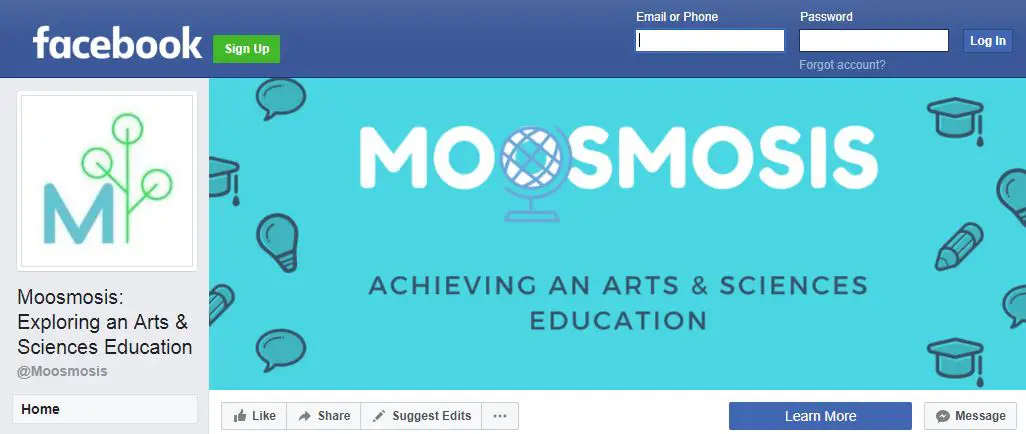Who is Athena The Greek Goddess? Fun Facts & Mythology About Athena the Goddess of Wisdom

Athena, also known as Pallas Athena or the Virgin Athena, is the goddess of wisdom, courage, inspiration, civilization, law and justice, strategic warfare, mathematics, strength, strategy, the arts, crafts, and skill in ancient Greek mythology. She is the daughter of Zeus and Metis, and is said to have been born fully grown and armored from the head of her father. The beautiful and wise Athena is one of the twelve most important Olympian deities who reside on Mount Olympus, alongside Greek Gods such as Hermes, Aphrodite, and Apollo.
Athena: Goddess of wisdom, courage, inspiration, civilization, law and justice, strategic warfare, mathematics, strength, the arts and crafts
Athena is often depicted as a strong, powerful and wise woman, wearing armor and a helmet and carrying a shield and a spear. She is a virgin goddess and is often associated with the owl, which is a symbol of wisdom in Greek mythology. Athena is also associated with the city of Athens, which is named after her and was considered to be her special city. The Parthenon temple in Athens is dedicated to her, and was considered to be one of the greatest architectural and artistic achievements of ancient Greece.
Athena is known for her intelligence and strategic thinking. She is said to have helped the heroes Odysseus and Perseus in their quests, and also played a significant role in the story of the Trojan War. In the Iliad, Homer describes her as “gray-eyed,” an epithet that highlights her sharpness of perception and intelligence.
Athena is also known for her role in the arts and crafts. She was said to have invented the flute and taught humans to use the olive tree for food, oil, and wood. She also taught the people of Athens the skills needed to build ships, houses and the Parthenon.
In conclusion, Athena is an important figure in ancient Greek mythology and is associated with wisdom, courage, inspiration, civilization, law and justice, strategic warfare, mathematics, strength, strategy, the arts, and crafts. She is a symbol of intelligence, strategic thinking, and skill. Her association with the city of Athens and the Parthenon temple highlights the significance of her cult in ancient Greece.

Myths and the Origins of Athena: Birth Story
The story of Athena’s birth begins with Zeus, the king of the gods, and Metis, a titaness and goddess of wisdom and deep thought. Zeus fell in love with Metis and married her, but soon learned that she was pregnant with a child who would be even more powerful than him. In order to prevent this, Zeus swallowed Metis whole, believing that this would prevent the child from being born.
However, Zeus soon began to suffer from terrible headaches, and the other gods and goddesses realized that this was a sign that the child was still alive and needed to be born. They decided that the only way to relieve Zeus’s pain was to cut open his head and release the child. So, the god of blacksmith, Hephaestus, was called upon to open Zeus’s head with an axe.
When Zeus’s head was opened, Athena emerged fully grown and armored, wearing her helmet and carrying her shield and spear. She was hailed as a powerful and wise goddess, and was immediately accepted as one of the twelve Olympian deities. The act of her birth also symbolize the power of wisdom, deep thought, and strategy.
In some versions of the story, Athena is said to have emerged from Zeus’s head fully formed, without a mother, thus earning her the nickname “Pallas Athena” or “Virgin Athena.” This emphasizes her power and wisdom as something innate and self-sufficient, not inherited or acquired from any external source.
Athena’s unique birth story is often seen as a representation of the ancient Greek ideals of wisdom and intelligence. Her emergence from the head of her father Zeus symbolizes the idea that wisdom and intelligence can be innate and self-sufficient, rather than something that is inherited or acquired. It also highlights the idea that wisdom and intelligence can be powerful enough to overcome even the strongest of obstacles.
In conclusion, Athena’s birth is one of the most interesting and unique stories in Greek mythology. Her emergence from the head of Zeus fully grown and armored emphasizes her power and wisdom as innate and self-sufficient qualities and highlights the ancient Greek ideals of intelligence and strategic thinking. The story of her birth is an important aspect of the mythology of Athena, and it continues to be an inspiration to many people today.
Myths and Stories About Athena
Athena and Odysseus
In Greek mythology, Odysseus is a celebrated hero, known for his intelligence and cunning as well as his bravery and leadership. He is the main protagonist in Homer’s epic poem, the Odyssey. The goddess Athena played a key role in Odysseus’s journey and played a vital role in his eventual return home.
The story of Odysseus and Athena begins with the Trojan War. Athena, who is known for her strategic thinking and intelligence, supported the Greek side in the war and aided Odysseus in his role as a leader and strategist. After the fall of Troy, Odysseus sets out on a journey to return home to Ithaca, but he faces many obstacles along the way, including the wrath of the sea-god Poseidon.
Throughout his journey, Odysseus receives help and guidance from Athena, who appears to him in disguise on several occasions. She helps him navigate through difficult situations and offers him advice on how to overcome the challenges he faces. For example, when Odysseus and his men are trapped by the Cyclops Polyphemus, Athena appears to Odysseus in the form of a young shepherd and tells him how to escape by blinding the Cyclops.

Athena also helps Odysseus in his final battle against the suitors who have taken over his palace and are courting his wife, Penelope. She gives him advice on how to defeat them and eventually restores his kingdom to him.
In the end, Odysseus returns home to Ithaca and is reunited with his wife and son. He is able to reclaim his throne and restore order to his kingdom with the help of Athena.
The story of Odysseus and Athena highlights the important relationship between the two figures. Athena serves as a mentor and guide to Odysseus, helping him to navigate the challenges he faces and ultimately to achieve his goal of returning home. It also showcases Athena’s intelligence, strategic thinking, and her role in helping heroes in their journey.
Facts About Athena
- Athena was a virgin goddess and was often associated with the owl, which is a symbol of wisdom in Greek mythology.
- Athena helped Odysseus and Perseus in their quests, and also played a significant role in the Trojan War.
- Athena is associated with the city of Athens, which was named after her and considered to be her special city.
- Athena is believed to have been the inventor of the flute and taught humans to use the olive tree for food, oil, and wood.
- Athena is said to have established the famous city of Athens, which was named after her.
- Athena was the patron of the Parthenon temple, located in the city of Athens, which was considered to be one of the greatest architectural and artistic achievements of ancient Greece.
- Athena was said to have contest with Poseidon for the patronage of the city of Athens, and Athens was given to Athena as the winner
Powers of Athena:
- Wisdom: Athena is the goddess of wisdom, and she is known for her intelligence and strategic thinking. She is often depicted as a wise and powerful woman.
- War and Strategy: Athena is also the goddess of strategic warfare, and she is known for her skill in battle and for helping heroes like Odysseus and Perseus in their quests. She was also considered to be the protector of the city of Athens and her own temple, Parthenon.
- Justice and Law: Athena is also associated with justice and law, and is considered to be a guardian of civic order and peace.
- Arts and Crafts: Athena is also known for her role in the arts and crafts, and she was said to have taught the people of Athens the skills needed to build ships, houses, and the Parthenon temple.
- Protector: Athena was also considered to be a protectress of heroes, heroes like Perseus and Odysseus called upon her for guidance and protection on their journey.
- Resourcefulness: Athena was also known for her resourcefulness and was considered to be the inventor of the flute, and taught humans to use the olive tree for food, oil, and wood.
- Leadership: Athena is also known as a leader, as she was said to have established the famous city of Athens, which was named after her.
- Courage: Athena was considered as the embodiment of courage, wisdom and inspiration, she was one of the twelve Olympian deity, and known for her bravery.
- Inventor and Guardian of Arts and Sciences : Athena was credited with inventing the flute, the trumpet, the plow, the rake, and the yoke. She was also considered as the guardian of the arts, music and crafts.
Relationships of Athena:
- Father: Zeus, the king of the gods and ruler of Mount Olympus.
- Mother: Metis, a titaness and goddess of wisdom and deep thought.
- Siblings: Athena was considered as an only child of Zeus, as she was born from his head, but she had many half-siblings through her father’s many consorts.
- Consort: Athena was considered as a virgin goddess and never had any consort or partner.
- Children: Athena was also considered as a childless goddess, as she was a virgin goddess and never had any children.
- Friends and allies: Athena had many friends and allies among the Olympian gods and goddesses, particularly with her fellow virgin goddesses such as Artemis and Hestia.
- Enemies: Athena’s most famous enemy was Medusa, a gorgon with snakes for hair who could turn people to stone with her gaze. Athena turned her into a monster as punishment for her vanity and was the one who helped Perseus slay her.
- Worshipers: Athena was widely worshiped throughout ancient Greece, particularly in the city of Athens where she was considered to be the patron goddess.
- Relation to heroes: Athena helped and guided many heroes, such as Perseus, Odysseus, and Bellerophon in their journey.

Symbols of Athena
- Owl: Athena is often associated with the owl, which is a symbol of wisdom in Greek mythology. The owl was seen as a companion of Athena, and it was said that the bird had the ability to see in the dark and through the night, representing the goddess’ ability to see through the shadows of doubt and uncertainty.
- Olive Tree: Athena is also associated with the olive tree, which was said to have been a gift from her to the people of Athens. The tree was considered sacred to Athena, and it was used for food, oil, and wood. The olive tree symbolizes wisdom, peace and civilization, as it was a source of food, light, and material for the people of Athens.
- Shield: Athena is also often depicted holding a shield, which represents her ability to protect and defend. The shield symbolizes Athena’s role as a protector of civilization and her ability to defend her people in times of war.
- Helmet: Athena is also depicted wearing a helmet, which represents her martial aspect and her role as a goddess of warfare. The helmet also symbolizes her ability to protect her mind and intellect.
- Spear: Athena is often depicted holding a spear, which represents her martial aspect and her role as a goddess of warfare. The spear symbolizes her ability to defend and protect her people.
- Parthenon: The Parthenon temple, located in the city of Athens, is dedicated to Athena and is considered to be one of the greatest architectural and artistic achievements of ancient Greece. The temple symbolizes Athena’s celebrated role as the beautiful and wise patron of Athens and her importance in the city’s culture and history.

Read more about the Greek Gods including Athena, Apollo, Poseidon, Aphrodite, and Hermes by checking out these popular articles: the Greek God Hermes, the Greek Goddess Athena, Greek God Poseidon, Greek Goddess Aphrodite, and the Greek God Apollo! Apollo’s love for Daphne remained strong and enduring, and it became one of the most famous love stories in Greek mythology.
| Name | Domain | Symbol |
|---|---|---|
| Zeus | Sky and thunder | Thunderbolt and eagle |
| Poseidon | Sea and earthquakes | Trident |
| Hades | Underworld | Helm of invisibility |
| Athena | Wisdom and warfare | Owl and olive tree |
| Apollo | Music, poetry, and prophecy | Lyre, bow and arrow |
| Artemis | Hunting and virginity | Bow and arrow |
| Ares | War | Spear and shield |
| Aphrodite | Love and beauty | Mirror and dove |
| Hephaestus | Fire and metalworking | Anvil and hammer |
| Hermes | Messengers and travel | Caduceus and winged sandals |
| Dionysus | Wine and fertility | Grapevine and thyrsus |
| Demeter | Agriculture and fertility | Cornucopia and wheat |
Check out these popular articles 🙂
Circulatory System: Blood Flow Pathway Through the Heart
Ectoderm vs Endoderm vs Mesoderm
Circulatory System: Heart Structures and Functions
Ductus Arteriosus Vs Ductus Venosus Vs Foramen Ovale: Fetal Heart Circulation
Cardiac Arrhythmias: Definition, Types, Symptoms, and Prevention
Upper Vs Lower Respiratory System: Upper vs Lower Respiratory Tract Infections
Seven General Functions of the Respiratory System
Digestive System Anatomy: Diagram, Organs, Structures, and Functions
Kidney Embryology & Development: Easy Lesson
Autocrine vs Paracrine vs Endocrine: What are the Differences?
Their Eyes Were Watching God: Mule Symbol
Shoulder Abduction Muscles: Medical Anatomy and USMLE
Cell Membrane Dynamics: Flippase vs Floppase vs Scramblase
Cell Membrane Fluidity: Factors That Influence and Increase the Cell Membrane Fluidity
Psychology 101: Crowd Psychology and The Theory of Gustave Le Bon
Introduction to Evolution: Charles Darwin and Alfred Russel Wallace
An Overview of Shorthand: History and Types of Shorthand
Calculus: Two Important Theorems – The Squeeze Theorem and Intermediate Value Theorem
Copyright © 2023 Moosmosis Organization: All Rights Reserved
All rights reserved. This essay first published on moosmosis.org or any portion thereof may not be reproduced or used in any manner whatsoever
without the express written permission of the publisher at moosmosis.org.

Please Like, Share, and Subscribe to our Email List at moosmosis.org, Facebook, Twitter, Youtube to support our open-access youth education initiatives! 🙂
Categories: Creative Writing, education, History, Literature













Wow, learned something new about Athena! It was fascinating to learn how she was born. Thank you for sharing.
LikeLiked by 2 people
Thank you Raymond for your kind words! So glad you enjoyed learning about Athena with us! ❤
LikeLiked by 2 people
Fascinating article on Athena!
LikeLiked by 2 people
Almighty Athena! A superb goddess! I’m a big fan of the Greek myths and mythology
LikeLiked by 2 people
Thank you so much Dr. Keys!
LikeLike
You’re welcome Athena!
LikeLiked by 2 people